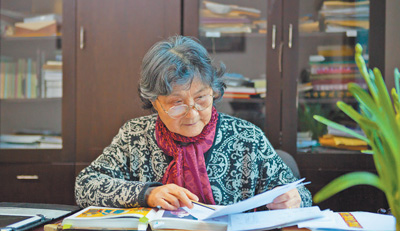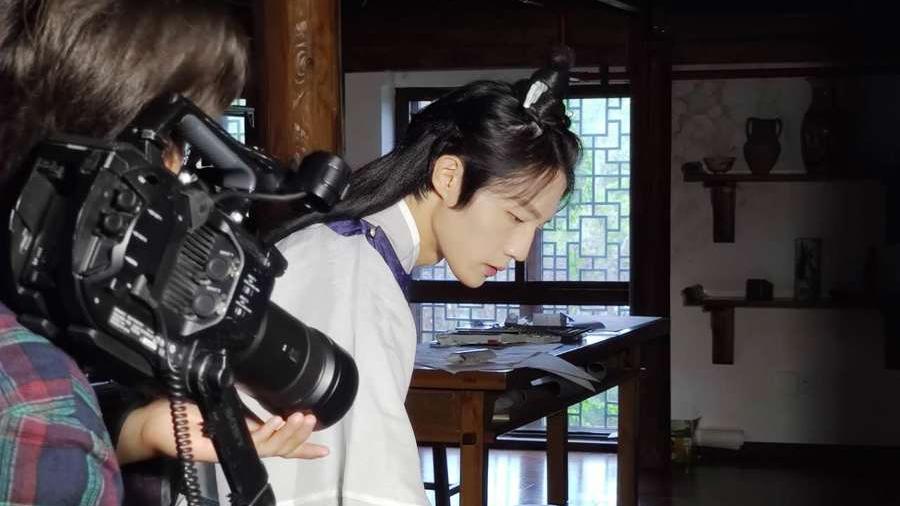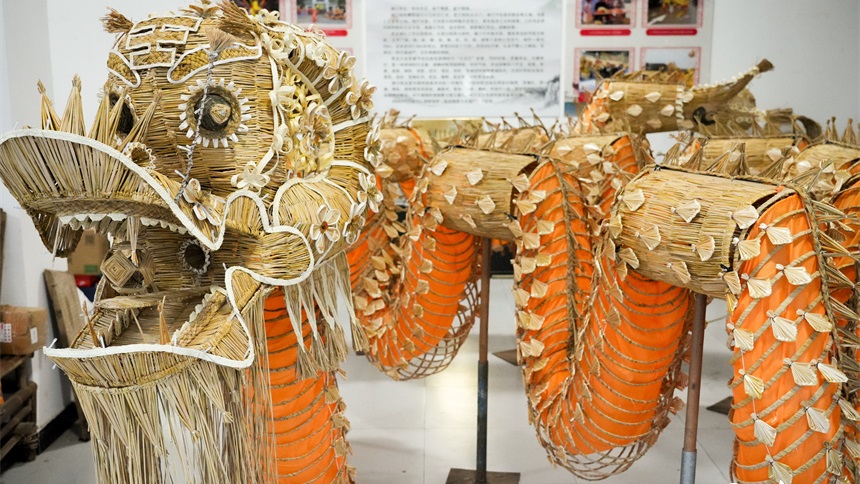Inheritor revives China's legendary Song brocade

Photo shows Qian Xiaoping, a national-level inheritor of the national intangible cultural heritage of Song brocade weaving techniques. (Photo courtesy of the interviewee)
At night, the ancient district of Suzhou city, east China's Jiangsu Province, shines brightly under city lights. Young people stroll through its historic alleys and waterways, dressed in "new Chinese-style" clothing made from Song brocade. At a Song brocade cultural park, visitors flock to purchase bags and scarves crafted from Song brocade. Just nearby, a weaving workshop hums with activity, as over 100 looms work overtime to fulfill orders.
Song brocade, known for its elegance and soft texture and named after the Song Dynasty (960-1279) as it was when the craft was invented, is one of China's three major traditional brocades, alongside Yun brocade and Shu brocade. Recently showcased in the autumn/winter 2024 (AW24) China Fashion Week, it has captivated audiences with its exquisite designs. However, this craft was once on the brink of extinction.
In 1998, the last Song brocade factory in Suzhou closed its doors. Across the street from this shuttered factory lived Qian Xiaoping, a senior engineer who had worked to preserve silk artifacts. Faced with the potential loss of this art form, she resolved to "resurrect" Song brocade. Starting with a single fragment of brocade found in an antique shop, she successfully revived the ancient weaving technique and introduced innovations to breathe new life into the craft.
Qian's first challenge was finding authentic Song brocade specimens. A fortuitous encounter at an antique store provided her with a small fragment that would become the key to unlocking Song brocade's complex weaving secrets.
Weaving Song brocade is like a systematic project and every single thread must be perfectly placed, according to Qian.
Her painstaking research involved rebuilding a specialized loom, a task that proved incredibly challenging. Despite having access to various traditional looms at the Suzhou Silk Museum, none could produce the intricate Song brocade patterns.
Qian secured support from the owner of a local silk enterprise, who was moved by her passion to revive the craft and provided her with workshop, equipment and personnel to conduct experiments. After solving complex technical challenges, she finally brought back Song brocade.
Song brocade weaving techniques were inscribed into the first batch of China's national intangible cultural heritage list in 2006, and Qian was named as the national-level inheritor of the craft one year later.
Since then, Qian has reproduced a series of classic Song brocade artworks, including one from the Northern Song Dynasty (960-1127) and one from the Ming Dynasty (1368-1644).
In 2009, she decided to reproduce a painting weaved using Song brocade techniques that was housed in the Palace Museum. She didn't have access to the original work. All she had were historical manuscripts. Qian spent six years recreating the artwork after studying the piece's raw materials, complex structures, and techniques.
Understanding that cultural heritage must evolve to survive, Qian has developed over a hundred new designs of Song brocade and other silk brocades. Many of her designs have become hits among younger generations.
"If we don't innovate, young people will not be interested in Song brocade," she said, adding that the ancient craft must keep up with the times.
In 2023, Qian established a silk textile design training program, determined to pass her 60-plus years of expertise to the next generation. In addition, she has authored several books on Chinese silk and textile arts, significantly lowering the entry barrier for those interested in the Song brocade industry.
The impact of her efforts is evident. One success story is Wu Jianhua, who founded the Saintjoy Song brocade brand. Thanks to Qian's help, Wu developed an electronic jacquard machine that respects traditional Song brocade techniques while dramatically improving production efficiency. Additionally, Wu's son has become an apprentice of Qian's.
With the rising popularity of guochao, or China-chic, a fashion trend featuring modern designs mixed with traditional cultural elements, Song brocade is experiencing a remarkable renaissance. In Suzhou alone, dozens of enterprises now produce and sell Song brocade products.
Photos
Related Stories
- Wa brocade gains wider popularity using coffee grounds as raw material
- County in SW China's Yunnan turns hand-woven brocade into thriving economy
- Young man from Taiwan popularizes traditional Nanjing Yunjin brocade
- Woman devotes decades to passing on traditional ethnic brocade craft in S China’s Hainan
- Man weaves future for ethnic brocade craftsmanship in China's Hainan
Copyright © 2024 People's Daily Online. All Rights Reserved.









